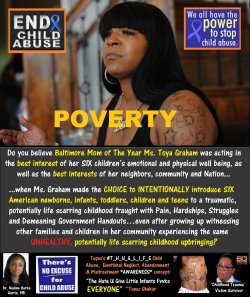NewsVine_Mariyam
Platinum Member
Ed Smith And The Imagination Machine: The Untold Story Of A Black Video Game Pioneer
At APF in the 1970s, as the second-known African-American video game engineer, he helped create an industry.
By Benj Edwardslong Read
Thirty-seven years ago, New York-based APF Electronics, Inc. released The Imagination Machine, a hybrid video game console and personal computer designed to make a consumer’s first experience with computing as painless and inexpensive as possible.
APF’s playful computer (and its game console, the MP1000) never rivaled the impact of products from Apple or Atari, but they remain historically important because of the man who cocreated them: Ed Smith, one of the first African-American electronics engineers in the video game industry. During a time when black Americans struggled for social justice, Manhattan-based APF hired Smith to design the core element of its future electronics business.
What it took to get there, for both APF and Smith, is a story worth recounting–and one that, until now, has never been told in full.
Edward Lee Smith was born in Brooklyn, New York, in 1954. He grew up in Brownsville, an impoverished neighborhood within the borough. His parents moved there from Mississippi a few years prior, and they weren’t alone. Between about 1910 and 1970, millions of black families like the Smiths fled north in a Great Migration, as historians now call it, to escape the terrors of the American South during the Jim Crow era.
What his parents found when they got to New York wasn’t much more promising than the South: Government policies and widespread racism kept black residents concentrated in small areas of low opportunity and high poverty. Places like Brownsville were the result. The neighborhood had once been primarily occupied by Jews, but later became known as a black ghetto, replete with scenes of crime and misfortune that unfolded every day. It was in this environment that Ed Smith came of age, the third eldest of six brothers and sisters, in a public housing development called Nobel Drew Ali Plaza. His mother was a domestic, and his father, an Army veteran, drove trucks for a living.
Early on, Smith’s father told the younger Smith not to expect any greater aspirations for himself. “Get your chauffeur’s license so you can learn how to drive a truck,” Smith recalls him saying, “because that’s all you’re ever going to do.” And yet such expectations could not suppress Ed Smith’s intense curiosity about how things worked. He began taking apart everything he could, and he soon taught himself to repair basic electrical gadgets like toasters and irons. Later, he moved on to radio receivers and TV sets. Smith’s electronics skills came in handy as he began doing odd jobs around the neighborhood to help make ends meet for his family. At times, he largely provided for himself.
Continued
At APF in the 1970s, as the second-known African-American video game engineer, he helped create an industry.
By Benj Edwardslong Read
Thirty-seven years ago, New York-based APF Electronics, Inc. released The Imagination Machine, a hybrid video game console and personal computer designed to make a consumer’s first experience with computing as painless and inexpensive as possible.
APF’s playful computer (and its game console, the MP1000) never rivaled the impact of products from Apple or Atari, but they remain historically important because of the man who cocreated them: Ed Smith, one of the first African-American electronics engineers in the video game industry. During a time when black Americans struggled for social justice, Manhattan-based APF hired Smith to design the core element of its future electronics business.
What it took to get there, for both APF and Smith, is a story worth recounting–and one that, until now, has never been told in full.
Edward Lee Smith was born in Brooklyn, New York, in 1954. He grew up in Brownsville, an impoverished neighborhood within the borough. His parents moved there from Mississippi a few years prior, and they weren’t alone. Between about 1910 and 1970, millions of black families like the Smiths fled north in a Great Migration, as historians now call it, to escape the terrors of the American South during the Jim Crow era.
What his parents found when they got to New York wasn’t much more promising than the South: Government policies and widespread racism kept black residents concentrated in small areas of low opportunity and high poverty. Places like Brownsville were the result. The neighborhood had once been primarily occupied by Jews, but later became known as a black ghetto, replete with scenes of crime and misfortune that unfolded every day. It was in this environment that Ed Smith came of age, the third eldest of six brothers and sisters, in a public housing development called Nobel Drew Ali Plaza. His mother was a domestic, and his father, an Army veteran, drove trucks for a living.
Early on, Smith’s father told the younger Smith not to expect any greater aspirations for himself. “Get your chauffeur’s license so you can learn how to drive a truck,” Smith recalls him saying, “because that’s all you’re ever going to do.” And yet such expectations could not suppress Ed Smith’s intense curiosity about how things worked. He began taking apart everything he could, and he soon taught himself to repair basic electrical gadgets like toasters and irons. Later, he moved on to radio receivers and TV sets. Smith’s electronics skills came in handy as he began doing odd jobs around the neighborhood to help make ends meet for his family. At times, he largely provided for himself.
Continued


